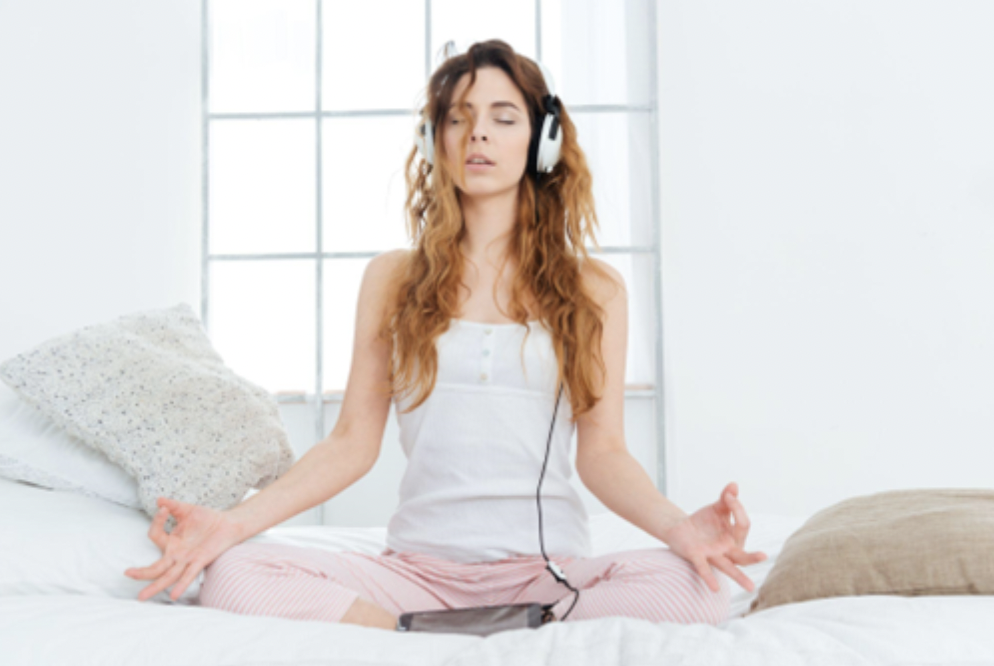Dealing With Stress The Smart Way
Aug 11, 2022
Maintaining one’s own mental and physical health can be trying for anyone, but now more than ever, it is a vital component to everyday life. Stress and anxiety manifest in a variety of ways and it differs for each individual. Some may find themselves needing to isolate to process and recharge when fear and worry creep in, whereas others may see changes in sleep or eating patterns (Fry, A, 2022). If these symptoms are not identified or carefully managed, they could lead to an increase in mental and physical health problems and conditions down the line.
In this article, we will shine the light on healthy ways you can cope with stress to help empower you whilst dealing with life’s inevitable ups and downs.
The 5 A’s of Stress Management
When we are faced with stressful situations, the brain responds automatically whether we anticipate the stressor (situation) or not. Research has shown that you can reduce this stress by not only shifting your perspective but by incorporating the 5 A’s: Avoid, Alter, Adapt, Accept, Activity (Dr. Sruthi M., MBBS, 2022).
- Avoid
Taking note of the stress that fills your day and discovering ways to make situations more enjoyable is a prime example of the ‘Avoid’ technique. For example, if your commute to work is stressful, before leaving try putting on your headphones and listening to a mindfulness meditation with guided imagery and breathing methods to relax the mind and reduce the likelihood of stress. This will release tension around the inner angst you may typically feel in this moment and transform the experience. Additionally, this will allow you to create distance between you and the stressor and you’ll find your experience positively shifts.
- Alter
Altering your approach, mindset or communication style can often change the way you view particular stressors. When you communicate clearly and respectfully as you assert boundaries or expectations, it can make a world of difference. For example, if you have a demanding day in the office, and a colleague needs your help, you could respectfully state your limitations in advance by saying “I am eager to help you but at the present moment, I have a few important things to take care of. After 3pm, I will be able to give you my full attention. Does that work for you”?
- Accept
Finding acceptance in situations can ease a profound amount of stress when techniques “avoiding” or “altering” don’t quite suit or resolve the stressor at hand. Ever heard of the saying, a problem shared is a problem halved? Talking with someone about how you’re feeling can help you offload tension, shift your perspective and help you perceive things from a different standpoint. You could consult someone you trust such as your doctor, a therapist, a spiritual counsellor, family member, mentor or friend. Through adopting this method, you may find you become more compassionate towards yourself, another person or a disappointing event that has transpired
- Adapt
Take inventory of the situations which cause stress in your everyday life and ask yourself these questions: Can I change my standards or expectations around these scenarios to help improve my experience with them? Will this current problem matter in five years time? Perhaps you are striving for perfection in everything you do, and it’s causing exhaustion or overwhelm. Perhaps you are focussing too much on what you don’t have rather than everything you do have? By shifting and adapting your mentality or mindset, you’ll most likely find the unnecessary pressure you place upon yourself will ease.
- Active
Much like our body, our brain needs exercise in order to function in an optimal capacity. Research suggests that exercise can help you sleep better if you do it early in the day, regularly, and for at least 30 minutes. If you're not a morning person, but still want to reap some of the benefits of exercise on your sleep, consider exercising after work or on your lunch break. The National Sleep Foundation notes that a dose of physical activity before bed can help promote better quality sleep because it is associated with lower levels of stress hormones (cortisol) and higher levels of melatonin which is the hormone that helps regulate your circadian rhythm. Not only does physical activity lower stress levels and contribute to better quality sleep, but your well being too (The Sleep Foundation, 2022).
Being aware of how you interpret or respond to difficult situations in your life will contribute significantly to your overall well being. Practicing these five steps can help to provide balance for a healthier, happier lifestyle. If you find yourself navigating a particularly difficult period in your life, try to be extra conscious about taking care of yourself: mentally, emotionally, physically and spiritually. Nourish your body with healthy foods, exercise, get plenty of rest and take the time to practice mindfulness.

Using tools such as the Empowerment Series which harness a range of different strategies like meditation and breath-work is ideal. After all, your mind and body are always, or should be, in sync. What is reflected to you in your outer world is a direct reflection of your inner world. Begin your wellness journey today with our Empowerment Series which consists of over 60+ empowerment practices using meditation, mindfulness, positive psychology, subliminal strategies and more. Get started on your wellness path today or try our mini series, completely FREE at iswara.life
References:
Stress and Insomnia (https://www.sleepfoundation.org/insomnia/stress-and-insomnia)
What are the five A’s to help manage stress? (https://www.medicinenet.com/what_are_the_%E2%80%9C5_as%E2%80%9D_to_help_manage_stress/article.htm)
Sleep and Exercise (https://www.sleepfoundation.org/physical-activity/exercise-and-sleep#:~:text=Exercising%20also%20improves%20sleep%20for,in%20bed%20during%20the%20night.)
Stay connected with news and updates!
Join our mailing list to receive the latest news and updates from our team.
Don't worry, your information will not be shared.
We hate SPAM. We will never sell your information, for any reason.

